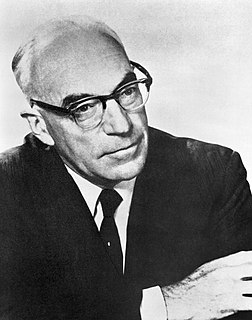A Quote by Sydney Brenner
Many have gone on to do important scientific work but all remember those wonderful times when we and our science were young and our excitement in meeting new challenges knew no bounds.
Related Quotes
It's wonderful and reassuring to see 'Hichki' doing so well. When I got to know the subject and signed the film, I knew that we were working on an important and sensitive subject. I knew that we had a winner at hand. But as artists, we are always a little anxious about our work, that's just in our DNA, I guess.
It is so important to remember that, as we travel through life, there will be so many events which we can`t control. These are things that seemingly alter our lives forever or become barriers for living a life of fulfillment. It`s important to remember that the ultimate experience of life is not to be controlled by events. We all have difficult events in our lives - the loss of family members, economics, stress, litigation, government interference in our businesses, health challenges. Remember that it is not the events that shape our lives, but, rather, the meaning we attach to them.
There is something wonderful about a death, how everything shuts down, and all the ways you thought you were vital are not even vaguely important. Your husband can feed the kids, he can work the new oven, he can find the sausages in the fridge, after all. And his important meeting was not important, not in the slightest.
There are many challenges, sadly many challenges our mothers were used to but have endured, which is inspiring. Sadly there are many challenges that many of us are already used to and have been fighting for years, yet our strengths will inspire future generations. That's not to forget we will share many more triumphs to come. It is all a process. Ironically enough, situations that violate human philosophy unite people of different backgrounds.
During my span of life science has become a matter of public concern and the l'art pour l'art standpoint of my youth is now obsolete. Science has become an integral and most important part of our civilization, and scientific work means contributing to its development. Science in our technical age has social, economic, and political functions, and however remote one's own work is from technical application it is a link in the chain of actions and decisions which determine the fate of the human race. I realized this aspect of science in its full impact only after Hiroshima.
It's a common perception that science and religion are mutually exclusive. But there are many scientists who would consider themselves to be spiritual people. Not only that, but in the case of climate change - a scientific issue with strong moral implications and difficult decisions to be made - it's essential to connect the science to our values. And for many of us, our values come from our faith.
Science and religion...are friends, not foes, in the common quest for knowledge. Some people may find this surprising, for there's a feeling throughout our society that religious belief is outmoded, or downright impossible, in a scientific age. I don't agree. In fact, I'd go so far as to say that if people in this so-called 'scientific age' knew a bit more about science than many of them actually do, they'd find it easier to share my views.
Those times are over and gone, and good riddance to them, too. We were hopelessly high-spirited. Now we're the tick-waisted generation, dragging along our children behind us and carrying our parents on our backs. And we're in charge, while the figures who used to command our respect are wasting away.
I remember once walking out hand in hand with a boy I knew, and it was summer, and suddenly before us was a field of gold. Gold as far as you could see. We knew we'd be rich forever. We filled our pockets and our hair. We were rolled in gold. We ran through the field laughing and our legs and feet were coated in yellow dust, so that we were like golden statues or golden gods. He kissed my feet, the boy I was with, and when he smiled, he had a gold tooth. It was only a field of buttercups, but we were young.
The basic question that the 'new science' raises for our balance sheet is the issue of what scientific questions have not been asked for 500 years, which scientific risks have not been pursued. It raises the question of who has decided what scientific risks were worth taking, and what have been the consequences in terms of the power structures of the world.
At times many of us let that enemy of achievement--even the culprit 'self-defeat'--dwarf our aspirations, smother our dreams, cloud our vision, and impair our lives. The enemy's voice whispers in our ears, 'You can't do it.' 'You're too young.' 'You're too old.' 'You're nobody.' This is when we remember that we are created in the image of God. Reflection on this truth provides a profound sense of strength and power.





































